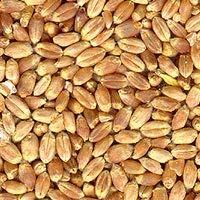Agricultural scientists are all for gene-altered crops that are safe for the environment and health and are beneficial to farmers, notes Surinder Sud.
 By raising frivolous objections to the appointment of noted farm scientist R S Paroda to the Technical Expert Committee, which was constituted by the Supreme Court to look into genetically modified crops, anti-GM activists have unknowingly done the country’s agricultural science sector a service.
By raising frivolous objections to the appointment of noted farm scientist R S Paroda to the Technical Expert Committee, which was constituted by the Supreme Court to look into genetically modified crops, anti-GM activists have unknowingly done the country’s agricultural science sector a service.
They have spurred farm scientists to come out openly to not only defend Paroda but, more importantly, support gene manipulation to produce tailor-made crops capable of withstanding stresses caused by pests, diseases, drought, salinity and climate change.
This campaign is being understandably spearheaded by the National Academy of Agricultural Sciences.
The NAAS is a science-oriented think tank on agricultural issues, which is not involved directly in the research and commercialisation of GM products.
Its endorsement of GM crops is, thus, based on theoretical and practical knowledge as well as scientific evidence, rather than on assumed dangers and personal biases against the GM technology.
Remember, it was on the NAAS’ plea that the Supreme Court chose to disregard the TEC’s earlier report that had mooted a 10-year ban on field tests of GM crops; the court instead reconstituted the expert panel and nominated Paroda on it.
The anti-GM lobby is now questioning his credentials as an independent expert; it argues that he has been associated with organisations that encourage biotechnology and receive financial support from the private sector.
Agricultural scientists discount this plea.
They say promoting any science or receiving contributions from private parties for non-profit organisations to promote research and development does not amount to personal gains for those associated with them; nor does this make them an interested party in the commercialisation of the developed technologies.
Some of the petitioners in the public interest litigation on the GM issue, apart from a few other members of the TEC, have been promoting organic farming, which -- according to NAAS officials -- has tremendous commercial potential
in the domestic and export markets.
They add that the actual experience of working in a particular field is essential to acquire technical expertise in that area.
“Experience and knowledge cannot be gained by standing aloof from the subject and watching it from the sidelines,” the NAAS’ rejoinder states.
Agricultural scientists are all for gene-altered crops that are safe for the environment and health and are beneficial to farmers.
Major biosafety worries about GM crops concern the contamination of other crops or wild plants through escaped pollens (read genes); allergy and toxicity caused by added genes; development of resistance among pests; loss of biodiversity; harm to ecosystems; and their social, ethical and economic aspects.
Almost all these concerns are required to be specifically addressed during the development and field tests of these crops under the supervision of regulatory authorities.
“Till date, no harm to humans, animals or environment has been reported from anywhere that can be attributed directly to the cultivation of duly tested and legally approved GM crops or the use GM products,” assert farm scientists.
A document on GM crops (Policy paper number 52) released by the NAAS mentions at least five specific instances of the alleged deleterious fallout of GM crops in India and elsewhere.
“In all these cases, subsequent studies showed that there were flaws in conducting the experiments and that the risks indicated were not justified,” the NAAS paper states.
The cited and peer-reviewed cases include the reported adverse effects of Bt corn on a non-targeted insect called monarch butterfly; contamination of traditional varieties (land races) due to Bt corn; harm to rats due to lectin in GM potato; fertility impairment in rats by transgenic soya bean; and another instance of objection to privately developed corn carrying Cry9C Bt gene.
Importantly, farm scientists feel that by seeking a ban on GM trials, the lobbyists will only thwart GM research in the public sector even as private companies will continue their work by shifting research and testing base to other countries.
This will rule out the much-needed competition in GM seeds produced by the private and public sectors, thereby hurting the interests of those farmers who want to adopt biotech seeds.

 By raising frivolous objections to the appointment of noted farm scientist R S Paroda to the Technical Expert Committee, which was constituted by the Supreme Court to look into genetically modified crops, anti-GM activists have unknowingly done the country’s agricultural science sector a service.
By raising frivolous objections to the appointment of noted farm scientist R S Paroda to the Technical Expert Committee, which was constituted by the Supreme Court to look into genetically modified crops, anti-GM activists have unknowingly done the country’s agricultural science sector a service.